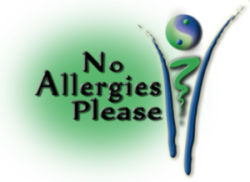Quote of the Month
“You just don’t appreciate breathing out of both nostrils until one is suddenly taken away from you.”
It’s ragweed season again…but only until frost, but exactly is ragweed?
Scientifically, there are about 17 types of ragweed in North America, but the two most common are:
- Common – a few inches high to 6 feet tall.
- Giant – they’re monsters that can grow up to 18 feet.
The best part is that they can grow pretty much anywhere. Apparently they’re also becoming resistant to glyphosate, one of the most widely used herbicides. They make a heck of a lot of pollen – millions of grains and travel thousands of kilometres by the wind.
Ragweed’s peak time starts in mid-August and only frost can take bring it down.
Climate change makes it worse. A study in 2011 showed that ragweed season had increased by two to four weeks over a 15-year period in northern U.S. and Canadian sites.
Lots of rain in the spring can make for a bad ragweed season. However, ragweed also loves hot, windy, dry days – just like the type of summer we’ve had this year. Rain also helps to control the ragweed pollen, but this summer we really haven’t had much rain, so we’re out of luck!
Goldenrod is another weed that blooms when ragweed is in season, but it’s flowers are bright yellow. It’s pollen is sticky and is distributed around by insects instead of wind. It’s usually not a problem for people at this time of year.
What You Can Do:
If you’re looking for natural options you can try some of the following:
- Don’t hang your laundry out to dry (especially your bed linens) during ragweed season
- Neti pots and sea water – some people swear by these
- Apple Cider vinegar – 3 times daily can help support your lymphatic system
- Quercitin – helps reduce the release of histamine
- Probiotics – heals the gut and therefore your immune system
- Butterbur – helps with bronchitis and asthma. Can be as effective as Allegra and Zyrtec (avoid for children, pregnant or breastfeeding women)
- Fix your diet – less inflammation means less reactivity. There are even some cross reactive foods to avoid
- We have some excellent herbal and homeopathic remedies available in our office as well
Make sure it’s ragweed that you’re reacting to by letting us test you (painless/no needles). It may turn out to be something like dust or mold instead. If you’re reacting to any of these things, we can help…check out our allergy relief technique.
Christine
Did You Know
Cucumbers, melons, zucchini, sunflower seeds, bananas, chamomile and even echinacea may make your ‘ragweed’ symptoms worse.
